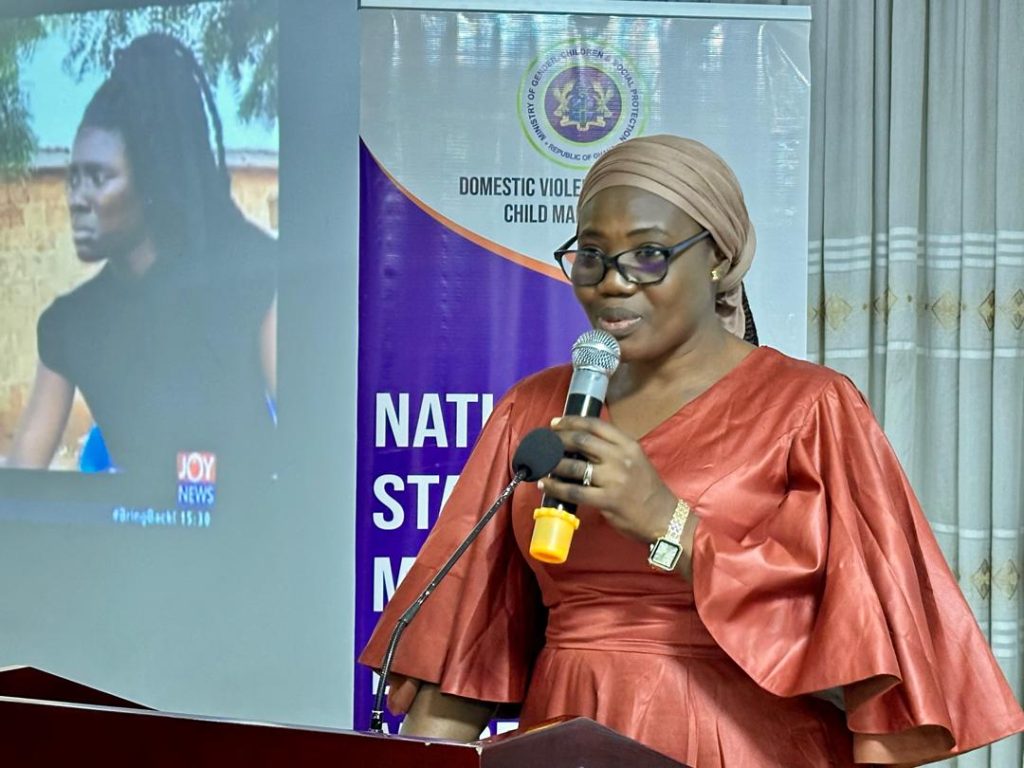By Priscilla Oye Ofori
Accra, Nov. 19, GNA — The Ministry of Gender, Children and Social Protection (MoGCSP), has called on stakeholders to intensify efforts to end child marriage.
It said it was a collective responsibility and investment as key stakeholders to continue to protect and empower young people, especially adolescents.
Dr Afisah Zakaria, Chief Director, Gender Ministry, said this in a speech read on her behalf at the 2024 Annual Stakeholders’ Meeting on ending Child Marriage in Ghana.
The Meeting serves as an avenue to share stakeholders’ efforts, achievements, strategies and best practices in the fight against child marriage in despite the challenges.
Dr Zakaria said stakeholders must continue to advocate for stronger laws and policies and enforce mechanisms to end child marriage.
She said, although the country had made impressive strides at eliminating child marriage, more efforts were needed to improve the developmental outcomes of the child brides.
The Chief Director said child marriage was a violation of fundamental human rights, robbing young girls of their health, education, and future potential.
“Statistics show us the urgency, but we know this is more than numbers because behind every figure is a child with dreams, talents, and aspirations taken away from them because of early or forced marriages.” Dr Zakaria added.
She said the Ministry, in partnership with the United Nations International Children’s Emergency Fund (UNICEF), among other things, spearheaded a study on Social Protection and Child Marriage.
It was to understand how the various social protection interventions such as the Livelihood Empowerment Against Poverty (LEAP) and Intergrated Social Services (ISS) can contribute to reducing child marriage.
She said there was another study on Gender Analysis of Social Behavior Change Programming on Ending Child Marriage.
That was to identify gaps in programming and opportunities to make interventions more gender transformative to complement the efforts in accelerating action to end child marriage.
“Much has been done, but much more is needed, to ensure that Ghana is on track toward successfully eliminating child marriage and all forms of violence against all women and girls in the public and private spheres,” she said.
Dr Doris Mawuse Aglobitse, the Gender Team Lead, United Nations Population Fund (UNFPA), who read a joint statement from UNICEF and UNFPA, said child marriage persisted despite legal and policy frameworks and penalties for offenders,
“We all know that adolescent pregnancy is a driver and consequence of child marriage, with two in ten adolescent pregnancies preceding marriage,” she said.

The 2021 Population and Housing Census Thematic Brief on Childhood Vulnerabilities in Ghana show that over 120,000 children between 12 to 17 years in Ghana were married or living with a partner.
Dr Aglobitse said gender inequalities were still deeply rooted in the country’s social system due to patriarchy and socialisation.
She said social and gender discriminatory norms remained key bottlenecks to achieving gender equality and reducing issues of child marriage.
“The daily realities for women and girls and in all their diversities, mean that we cannot rein in our efforts or our ambition. That 10-year-old girl has hopes of her own,”
“UNFPA and UNICEF are committed to standing with her, as we have always done, in her village, on the hilltop, in the refugee camp, in peace and in war,” the Gender Team Lead said.
GNA